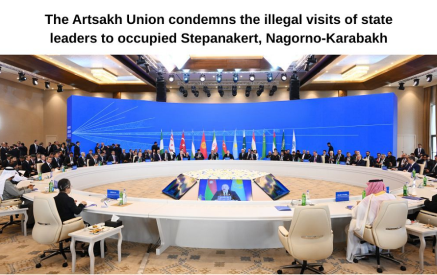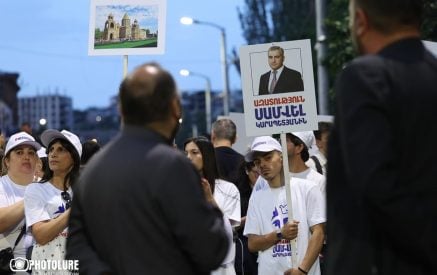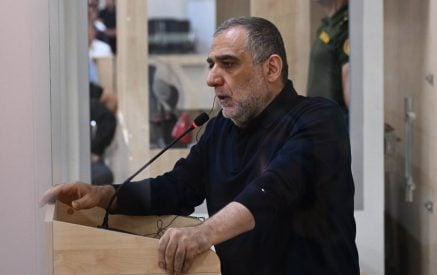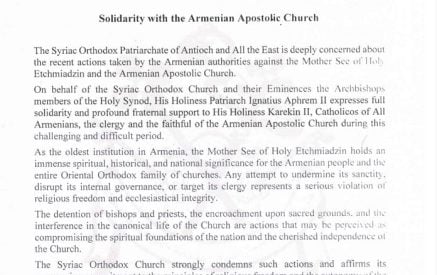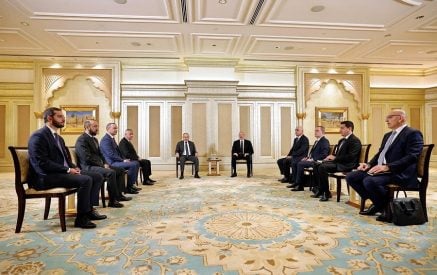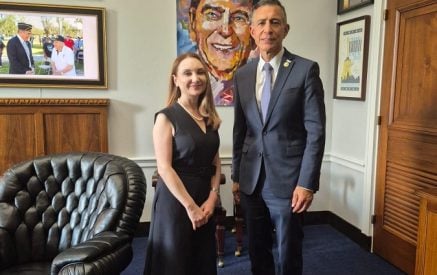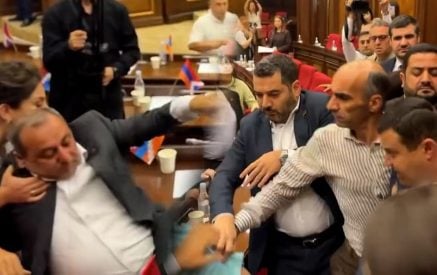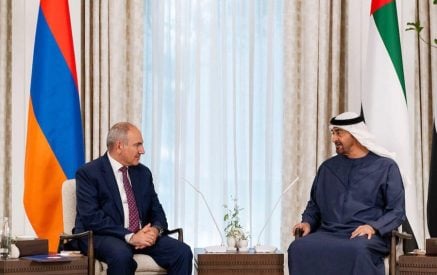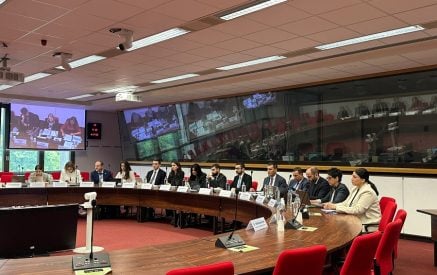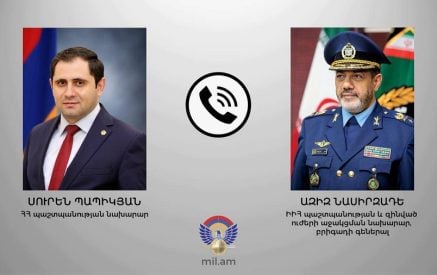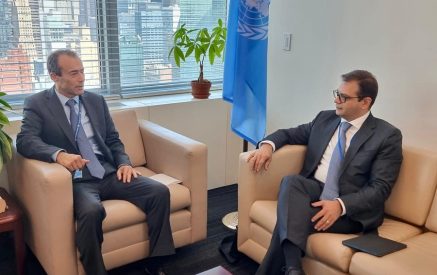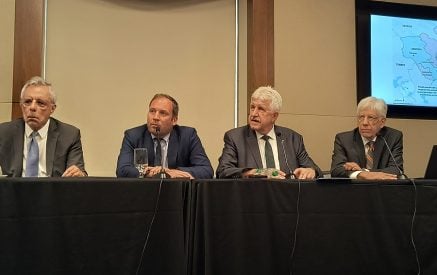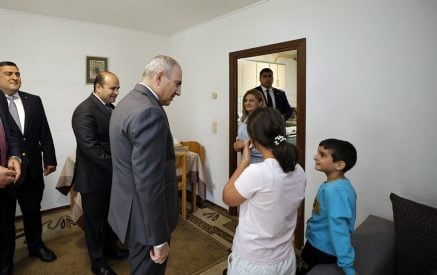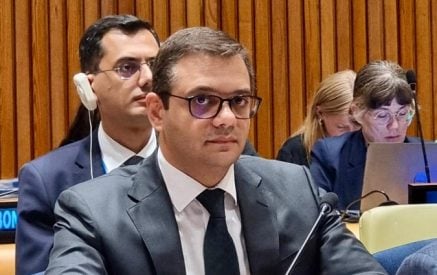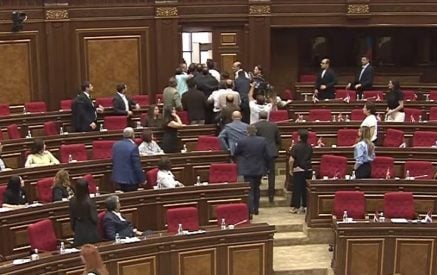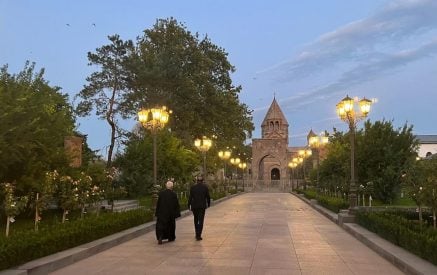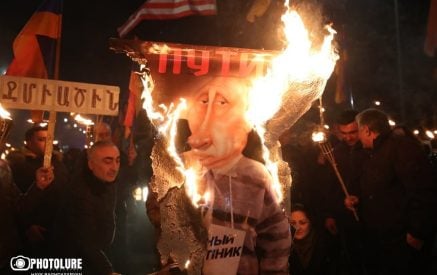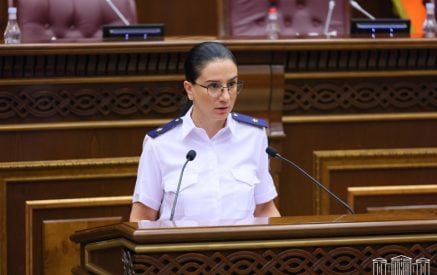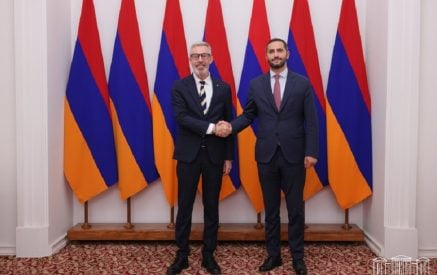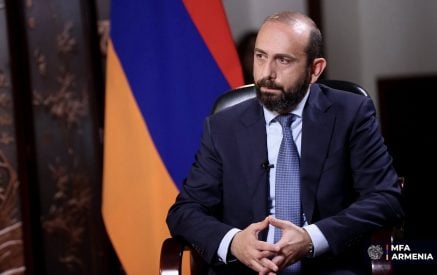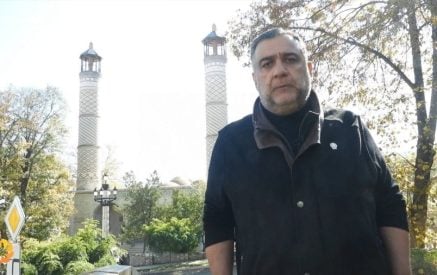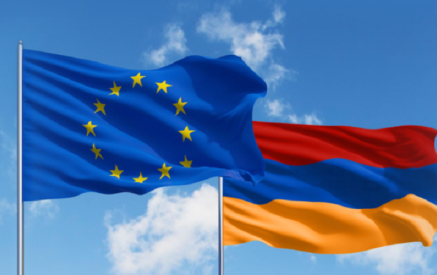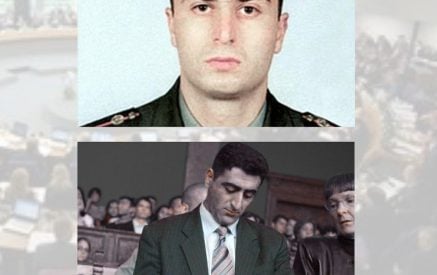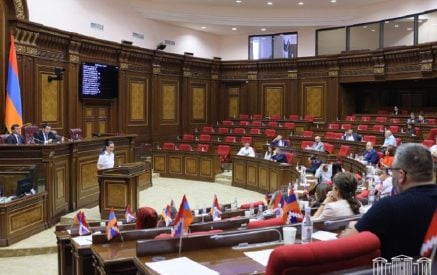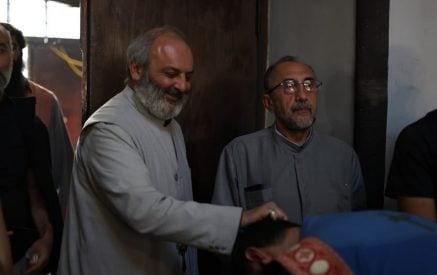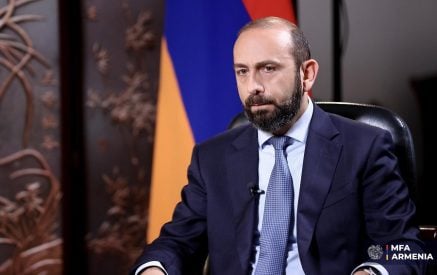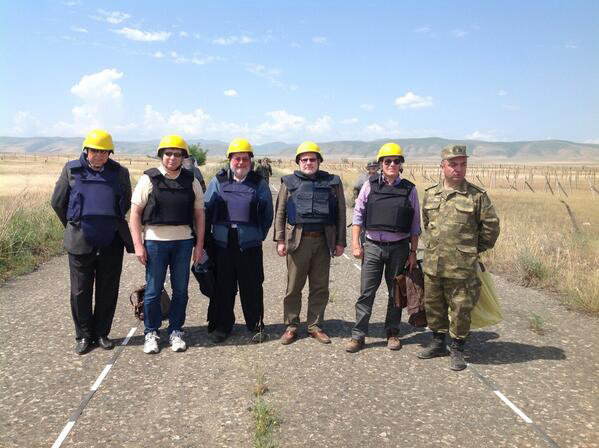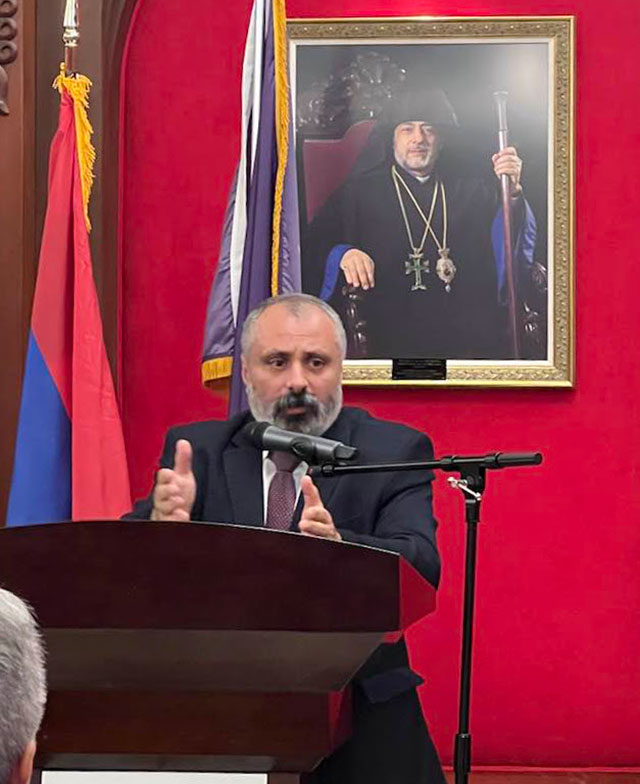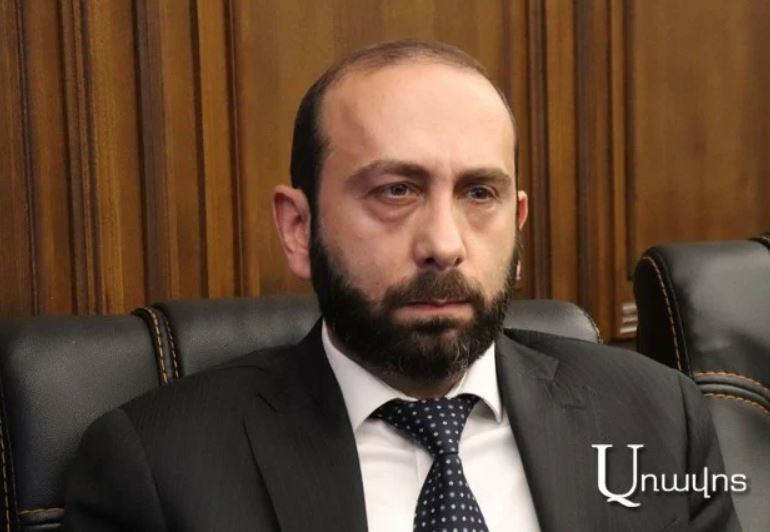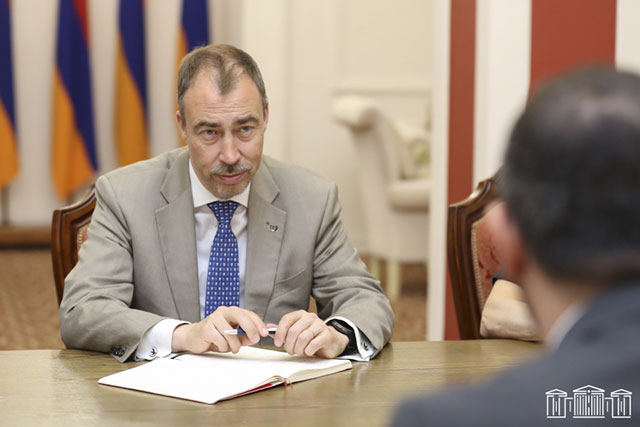Or, future negotiations in the circle of Warlick’s speech and the subsequent events
The OSCE Minsk Group Co-chairs summarized the regional visit. They expressed the hope that the parties will reach agreement on joint use of the Sarsang water reservoir.
This time, the Co-chairs’ visit in general was marked by notable events. The Co-chairs were met in Nagorno-Karabakh with protest. This is interesting, because usually when the co-chairs are visiting the region and limited to only visits to Yerevan and Baku, not visiting Stepanakert is perceived some sort of bad in Artsakh, even a little “sensitivity” is felt of why they ignored Artsakh this time. But, times have changed…
The protestors demanded, namely, to hear from James Warlick their views and consider them. Warlick mentioned that they respect the rights of the people. “Despite the disagreements, we need to look for some some way out, because the worst option could be the resumption of hostilities.” Responding to journalists’ observation that these very six elements could lead to a new war, the American co-chair recalled that these six elements are not new. “I consider it important to emphasize that all of these is not a mandatory decision. The Minsk Group cannot impose, we are here to help people, listen to their opinions and meet not only with de facto authorities, but also with the people,” he said.
Read also
During the meeting with the co-chairs, the Karabakh authorities have stressed that the freedom and independence are exceptional values for Artsakh, and return to the past, both in terms of status and borders, is impossible. The mediators have met with the President of Nagorno-Karabakh, the foreign minister, as well as the defense minister. The Co-chairs’ visit to Azerbaijan passed under remarkable conditions. The President of Azerbaijan and the Foreign Minister were missing from the country on that day, and the mediators met with Azerbaijani Defense Minister Zakir Hasanov, and according to Azerbaijan media, the Azerbaijani Defense Minister has said that the efforts of the international community on conflict settlement are ineffective.
This, perhaps, is not worth calling a démarche by official Baku and a blatant fact of neglecting the OSCE MG. But the fact that the tension in Azerbaijani-American relations has reached the peak is obvious. The OSCE Minsk Group Co-Chair James Warlick’s famous speech was followed by a sensational interview by the U.S. Ambassador to Azerbaijan in Baku, exactly on the days, when the OSCE Minsk Group co-chairs were in the region. The US Ambassador to Azerbaijan Richard Morningstar, who is completing his diplomatic mission in the coming months, as they say, openly said in Baku that the activation of the efforts towards NK conflict settlement is associated with the events in Ukraine. “After all the steps that Russia initiated in the Crimea, no one can say how Moscow or another third party is going to use created situation,” said Morningstar, later strongly criticizing Azerbaijani authorities for persistent prosecutions against the opposition figures, civil activists and journalists. He said that such practice deteriorates the relations between the West and Baku.
The American Ambassador also pointed out that such steps weaken the position of Azerbaijan at the negotiation table on Karabakh conflict settlement. Morningstar also touched upon the issues of democracy in Azerbaijan. “We believe that the more open civil society, the stronger will be the stability. It is in the interests of both the society and the government. But sometimes it takes strange and unnecessary steps, particularly tormented citizens. But we have always said and will saythat we will talk to the Azerbaijani government on democracy and human rights. If the government will continue taking a harder line, will not give breath to civil society, the events in Maidan may recur in Baku. If not now, then in 5-10 years.”
Morningstar’s sensational statements were followed by harsh reaction of Azerbaijani authorities, one after another. First, the Head of Foreign Relations Department of the Presidential Administration of Azerbaijan, Novruz Mammadov, mentioned that with his expressions, Morningstar is making attempts to cast a shadow on friendly relations of Azerbaijan with neighboring countries, Iran and Russia. Mammadov accused Morningstar of interfering in the internal affairs of the country. Referring to Morningstar’s statement that Ukrainian “Maidan” can recur in Azerbaijan, Mammadov emphasized that the whole world knows who has inspired the events in Ukraine. In his words, “Maidan” is the result of U.S. policy and funding, and that certain forces in Azerbaijan have repeatedly initiated attempts of such scenarios, but they all have failed.
Azerbaijani Foreign Ministry spokesman Elman Abdullayev also qualified the American ambassador’s interview as interfering in Azerbaijan’s internal affairs and attempts to guide them, considering them unacceptable. The Head of socio-political department of the Presidential Administration of Azerbaijan Ali Hasanov, with regard to Morningstar’s interview, said, “I consider that is not good when the U.S. or any other great state or international organization is trying to interfere in Azerbaijan’s internal affairs, or its foreign policy trying to control it, and teach people how to live.” Hasanov also called Maidan a plan by “some international powers” and has identified them as responsible for country’s civil resistance, chaos, and anarchy.
Warlick apparently reached his goal. In Armenia, Azerbaijan and Nagorno-Karabakh, the community appeared in the turmoil of discussion on Karabakh conflict settlement principles, something that has not happened long ago.
The activation in the negotiation process is provided. Moreover, Washington is exerting open pressures towards the official Baku, perhaps, making them to understand that it will not turn the blind eye on Baku’s destructive stance. This is probably the very reason that the top circles of Azerbaijan authorities are openly seeking for a support in Moscow, complaining that the U.S. is pursuing a goal to cast a shadow on Azerbaijan’s friendly relationship with Russia. How the recent events will affect the course of possible Karabakh negotiations in the future, of course, is hard to predict. But the fact that the parties will have to reach some agreements on rules of the game in the circle of Warlick’s speech and subsequent events, however, is beyond doubts.
EMMA GABRIELYAN




